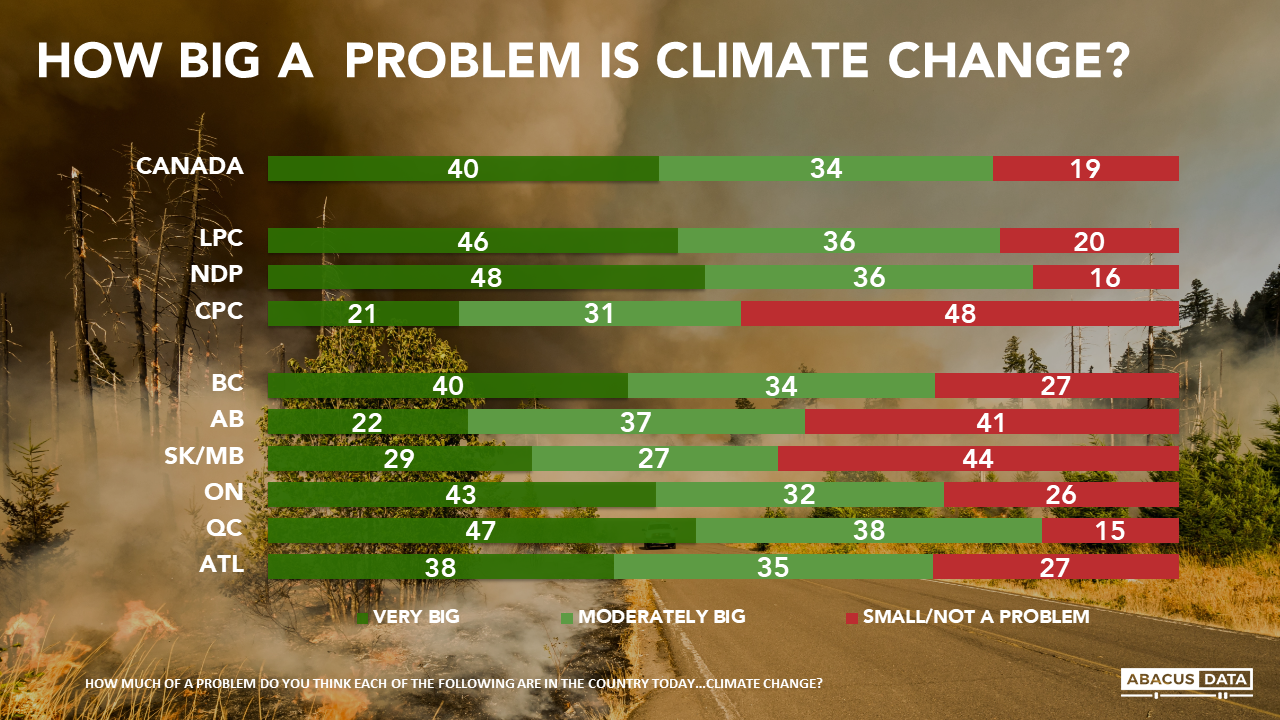This and the article above can shed some light on why a
minority of folks cannot accept human caused global climate change - it doesn't fit very well into either their bank accounts or their political beliefs.
https://www.timescolonist.com/opini...ange-is-too-important-for-politics-1.23523866
Lawrie McFarlane: Climate change is too important for politics
Lawrie McFarlane / Times Colonist
December 9, 2018 06:00 AM
When you turn to Liberal and NDP voters, however, the numbers reverse. Among Liberals, 81 per cent believe climate change is real and human-caused. Among New Democrats, 85 per cent agree with that view, and almost no one in either group thinks climate change is an unproven theory.
I call this puzzling because we’re talking about a matter that lies in the realm of science, not politics. Admittedly, this is not the first time controversy has swirled around a scientific thesis.
In the 1600s, the Italian astronomer Galileo was forced by the Catholic church to abandon his claim that the Earth orbits the sun. He was even placed under house arrest. It is said some cardinals refused to look through his telescope, for fear he might be right (though this could be as much legend as fact).
And during the modern era, the theory of evolution has been rejected in certain quarters.
Yet those are both instances where the opposition was based on largely religious grounds. Setting them aside, I can’t think of another scientific claim provoking such marked disagreement along strictly political lines.
It’s no secret that political preferences determine how voters approach various matters of public policy.
Climate change is not, however, any sort of policy. It’s a scientific theory based on meteorological observation and temperature measurements. So why the breakdown along political lines?
The answer I think is that to date, scientific advances have generally created benefits that outweighed their costs. I’m thinking in particular of medical discoveries, such as antibiotics and MRI machines, but numerous other fields of research can make this claim.
However, acceptance of climate change entails policy prescriptions that are at once broad and intrusive. Their benefits are uncertain and lie well in the future, while their costs are immediate and far-reaching.
It’s natural that voters who are comfortable with more government regulation, higher public spending and appeals to supra-national co-ordination can buy into these prospects. They tend to support such policies in any case.
Likewise, it’s understandable that individuals who dislike this prospect are suspicious of the science that gave rise to it. They fear the economic consequences that come with it.
Nevertheless, there is a warning here for both sides. While the majority of voters might accept global warming as a reality, there are limits to how far and how fast governments can go. French President Emmanuel Macron discovered that last week, when he had to suspend a new carbon tax on gasoline after violent protests in Paris turned into nationwide uproar.
Equally, denying that the theory lacks a factual basis invites derision, even if more catastrophic prognostications come up short. For though smaller-than-forecast temperature increases might force some backtracking, they will still be taken as proof that outright deniers are wrong.
In short, this is too important an issue for hyping — in either direction.
Back in 1964, a candidate for the U.S. presidency, Barry Goldwater, said that “moderation in the pursuit of justice is no virtue.” In the midst of the Cold War, some believe his rejection of moderation cost him the election.
The conflict over climate change is being fought on a different battlefield, but the message remains the same. In a matter with existential implications, moderation is essential on both sides of the issue.




